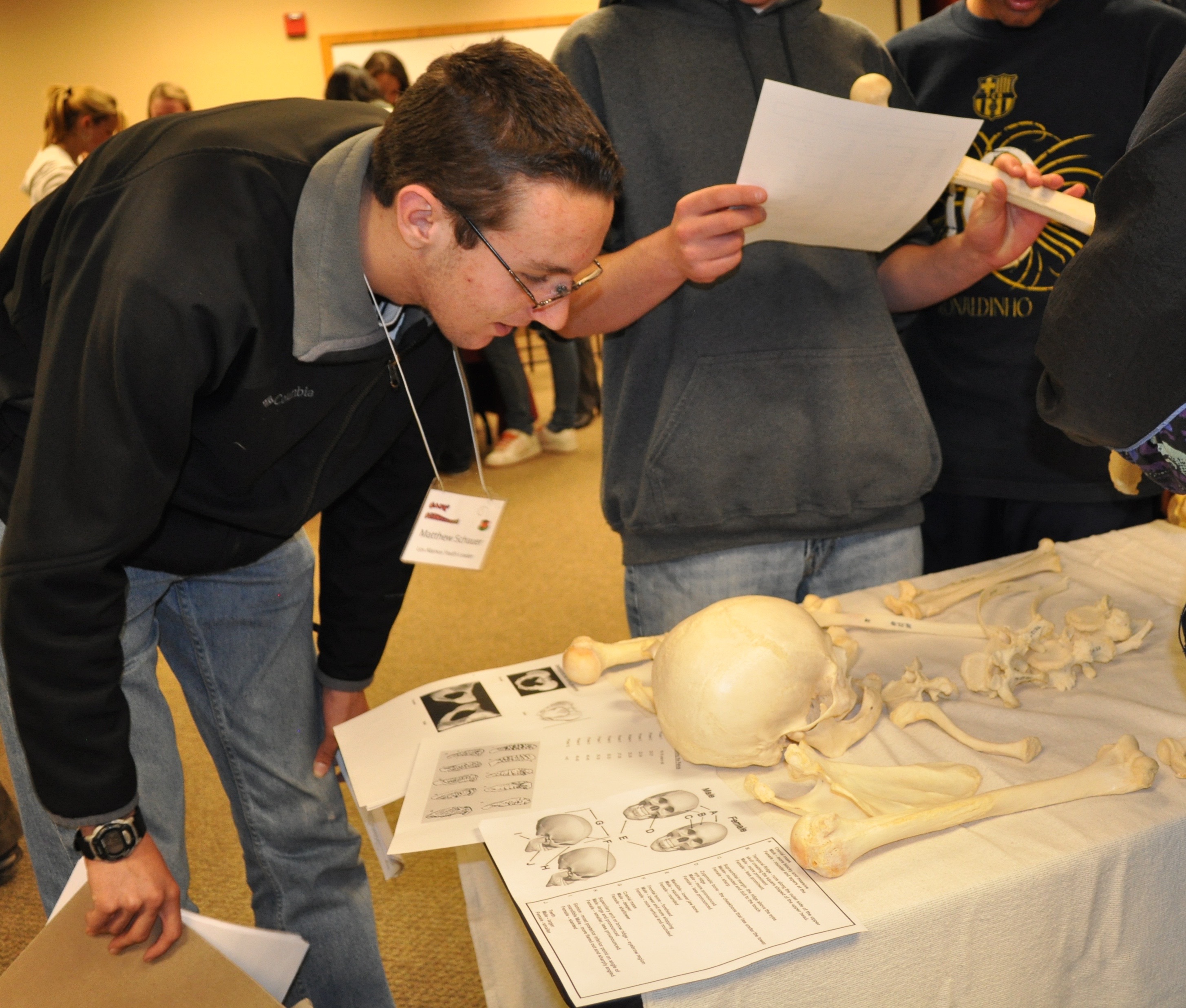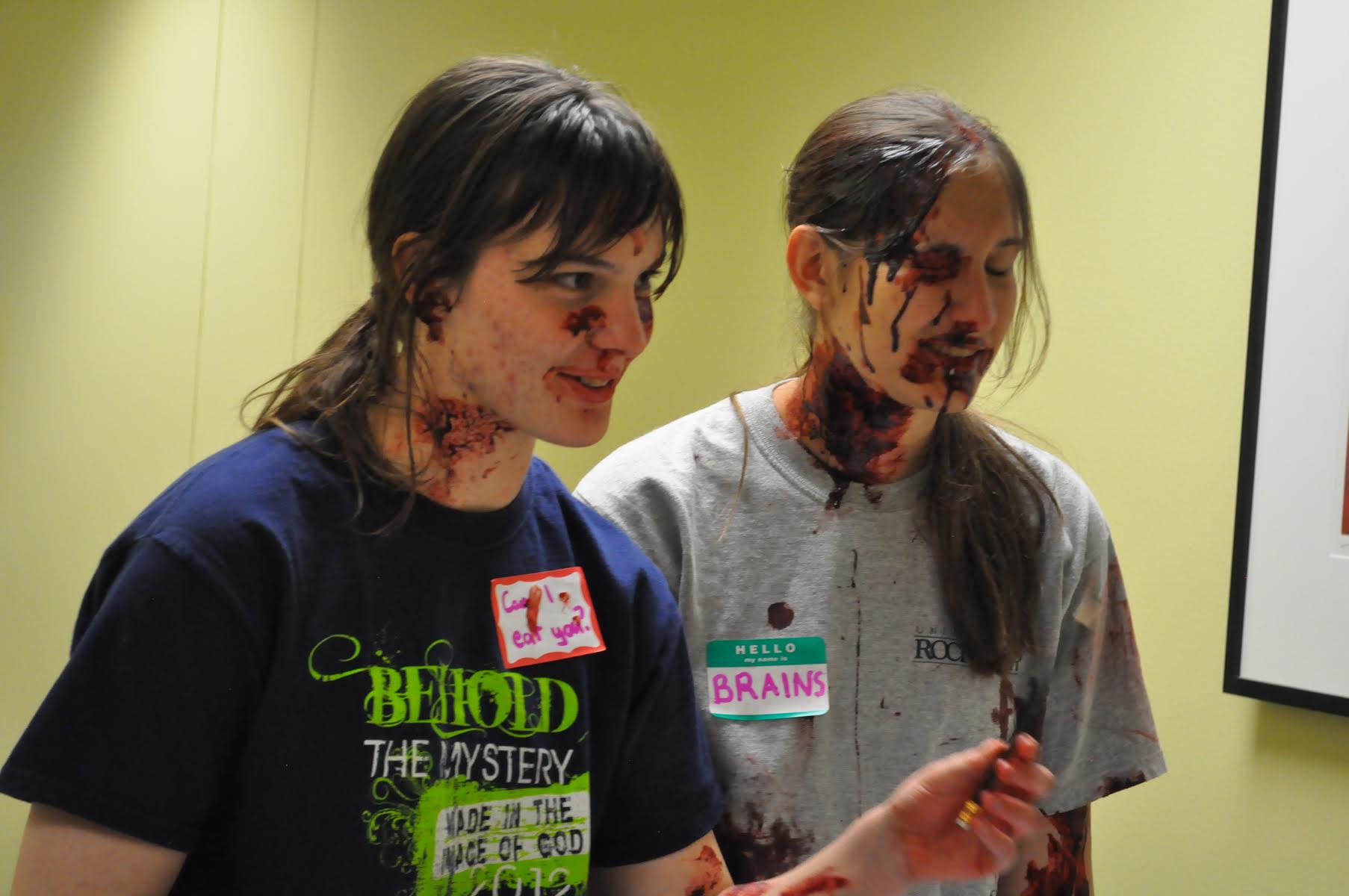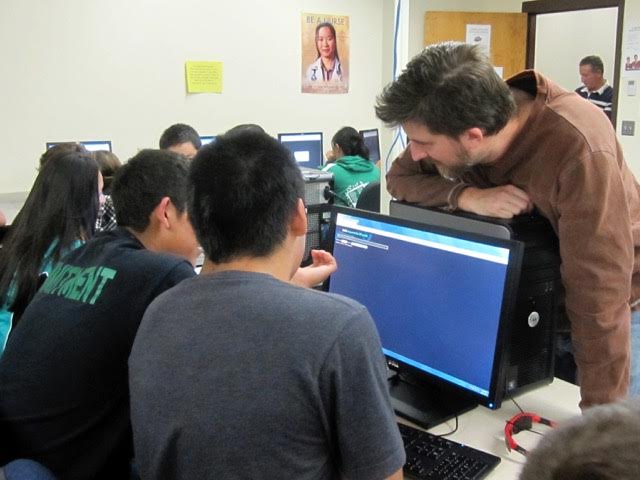27 June 2016
Teen Science Cafés: A vehicle for connecting scientists with high school teenagers
Posted by Shane Hanlon

Matthew Schauer examines a skeleton, looking for clues on gender, age, racial features, and possible cause of death at a Teen Café on “The Secrets Held Within a Bone.” Credit: Michelle Hall
By Michael Mayhew and Michele Hall
Teen Science Café s are a free, informal, low-risk way for scientists to share their science with a receptive audience focused on future careers. They are an adaptation of the globally popular Science Cafe model for connecting the adult public with science and scientists. Adaptations of the model include teen leadership to ensure the programs are relevant to teens, discussions of career pathways related to the event topic, and the addition of an active-learning component. Teen Café programs have been initiated in 41 sites in 18 U.S. states via the Teen Science Café Network.
Besides being a fun, highly social way to engage with a scientist and each other around an interesting science topic, Teen Café s have been shown to be effective in giving teens a wholly new perspective on how science really works, the interesting lives that scientists lead, and the relevance of science in their own lives.

For a Teen Café on brain neuroscience that demonstrated how various pathologies can explain zombie behavior, the teens–Emily Tencate and Linda Bobcella shown here– dressed appropriately. Credit: Michelle Hall
Teen Cafés are highly rewarding to the scientist-presenters as well. They receive training that introduces them to storytelling and improvisation that will help them in effectively communicating their work, not only to teens, but to managers, funding agencies, policy makers, and the media as well. They typically report that their experience has led them to a new perspective on their own work. Teen Cafés can be an excellent vehicle for scientists to have broader impact on the current generation of students, our future adult citizens.
Teens have learned about many topics, ranging from algal biofuels, to the energy-water-climate-nexus, to ‘corals on acid, and more. Presenters have come from a great variety of local institutions—universities, research labs, businesses—with a science mission. While most nodes offer Café s on the whole range of topics in science, engineering, and technology, programs may well have a specific disciplinary focus, such as water resources, tectonics, or space physics.

Neale Pickett (Los Alamos National Laboratory) explored “Cyber Attacks: First Google, Then You?” Credit: Michelle Hall
Any organization wishing to start up a Teen Café program can become a Member of the Teen Science Café Network. The Network will provide all the support that is needed to start and successfully run a Teen Café program.
Teens consider their Teen Café program to be interesting and fun, but it has also been shown that these events provide them with a much more realistic view of the nature of science, the work scientists do, and the relevance of science to their lives, while enriching and bringing a real-world perspective to the science they learn in school.
-Michael Mayhew and Michelle Hall are with Science Education Solutions, based in Los Alamos, New Mexico. A longer form of this post can be found here.


 The Plainspoken Scientist is the science communication blog of AGU’s Sharing Science program. With this blog, we wish to showcase creative and effective science communication via multiple mediums and modes.
The Plainspoken Scientist is the science communication blog of AGU’s Sharing Science program. With this blog, we wish to showcase creative and effective science communication via multiple mediums and modes.